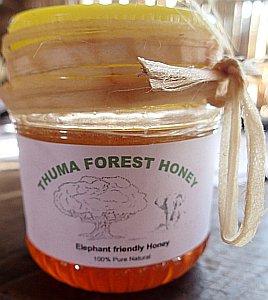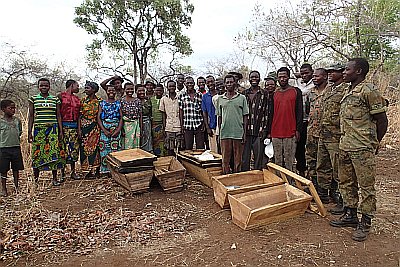Chituula Bee Club – Dedza Salima Forest Reserve
 |
|
All ten honey pots sold within days .. |
Chituula Bee Club comprises 10 members (men and women) of the Kusawana Village very close to Dedza Salima Forest Reserve. A few years ago they had beekeeping training from WAG trustee, Tony Finch. However they were unable to continue with the initiative due to lack of suitable beehives. Earlier this year WAG provided the club with 8 beehives that had been made locally and a week of refresher training to get them up and running.
 |
|
WAG has provided the club with 8 beehives that had been made locally. |
The hives were hung just inside the reserve close to the village and by the river, making it an ideal area for bees with pollen rich plants growing near to the natural water source. Within just one week set up, wild bees had started to colonise the hives.
Much to the delight of the Chituula Bee Club, in July this year, the first honey batch was harvested. We designed a label for them and helped process it and package the honey (which by the way tasted really gorgeous) The honey was marketed in “Cool Runnings” a beautiful little lodge set on the edge of Lake Malawi in Senga Bay. All ten pots sold within days. 100% off all proceeds from the honey went back to the Chituula Bee Club. A second batch was harvested 3 weeks ago, and that too has been sold. A total of 60,000 mk which is almost 100 euro has been made to date. A significant income boost for this local community.
We are planning to increase the number of hive and are looking at alternative types of bee hives, that are less expensive to build and made from more sustainable materials to help enable local population to be self sufficient.







